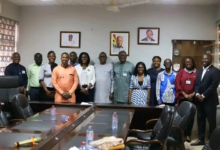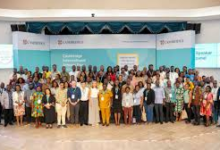GCC holds second gender conference

The Ghanaian-German Centre for Jobs, Migration and Reintegration (GGC) has held its second edition of gender conference to address the myriad of problems faced by both men and women in their quest to seek greener pastures for themselves and their families.
The conference which was in collaboration with the Ministry of Employment and Labour Relations (MELR) brought together key stakeholders drawn from civil society, government among others.
On the theme: “Exploring support systems available in Ghana before and after migration: The case of female migrant workers” it provided a platform for stakeholders to discuss and exchange ideas to contribute to policy and interventions on gender and migration through exploring support systems available in Ghana before and after migration.
Speaking at the event, the Country Director of GIZ Ghana, Ms Bauerochse Barbosa noted that female migrants were at risk than their male counterparts.
“We must, as a matter of urgency, invest in the formulation of innovative and practical ideas on how regular pathways can be enhanced; as well as harness the opportunities and manage the associated risks,” she said.
She said in order to overcome the structural and systemic factors behind the gender-migration nexus, a synergised approach had to be adopted by stakeholders to make a more concerted effort to mitigate the negative socio-economic effects of female migration.
She reiterated the Centre’s commitment to joining hands with relevant partners to be a voice in championing gender related issues and how that impacts on migration.
“We want to join hands with relevant partners to be a voice in championing gender related issues and how that impacts on migration. The emotional, psychological and physical support mechanisms must be effectively in place and functional to serve and discharge its mandated roles,” she said.
Chief Director of the Ministry of Employment and Labour Relations, Kizito Ballans on his part said, the government was committed to ensuring decent work outcome for all workers including people working in Ghana and Ghanaians who travelled abroad for work.
BY VIVIAN ARTHUR



